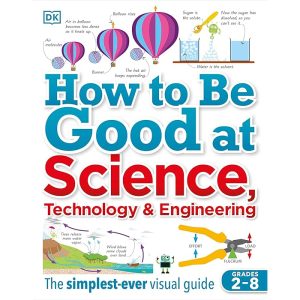Description
The future of science and technology is filled with exciting possibilities, driven by advancements in various fields that could radically transform human life. Here are some key areas where science and technology are poised to make significant strides:
### 1. **Artificial Intelligence and Machine Learning**
– **AI in Daily Life**: Artificial intelligence will become more integrated into everyday activities, from personal assistants to smarter cities. AI-driven devices could optimize traffic flow, automate healthcare diagnostics, and assist in education by offering personalized learning paths.
– **Advanced AI Models**: With advancements in neural networks and deep learning, AI could develop even greater problem-solving abilities, from managing climate change to discovering new drugs.
### 2. **Quantum Computing**
– **Faster Computing Power**: Quantum computers, which use the principles of quantum mechanics, will far exceed the capabilities of classical computers. This will unlock solutions for complex problems like encryption, drug discovery, and materials science.
– **Cryptography Revolution**: Quantum cryptography promises to revolutionize data security, making current encryption methods obsolete and creating unbreakable communication systems.
### 3. **Biotechnology and Genetics**
– **Gene Editing**: CRISPR and other gene-editing technologies will allow for the precise modification of genetic material. This could lead to cures for genetic diseases, enhanced agricultural crops, and even the ability to edit human embryos for desirable traits.
– **Personalized Medicine**: Advances in genomics will enable medicine tailored to the genetic makeup of individuals. This could lead to more effective treatments, reducing side effects and improving patient outcomes.
### 4. **Space Exploration and Colonization**
– **Mars and Beyond**: With initiatives like SpaceX, humans are aiming for a future where space colonization is a reality. Mars could be the first planet for human settlement, with technologies evolving for sustainable living on the Red Planet.
– **Space Tourism**: The commercial space industry will likely continue to grow, offering tourism opportunities in space, and perhaps even the development of space hotels or research stations.
### 5. **Renewable Energy and Sustainability**
– **Fusion Power**: Nuclear fusion promises an almost limitless and clean energy source. While still in the experimental phase, successful fusion power plants could revolutionize the global energy landscape.
– **Clean Technologies**: Solar power, wind energy, and new sustainable methods of harnessing energy will become more efficient, reducing humanity’s reliance on fossil fuels and combating climate change.
– **Carbon Capture**: Technology to capture and reuse carbon emissions will help reverse the effects of climate change by reducing atmospheric CO2 levels.
### 6. **Neurotechnology**
– **Brain-Computer Interfaces (BCIs)**: BCIs will allow for direct communication between the brain and external devices, potentially treating neurological disorders or enhancing human capabilities. This could also enable controlling machines or prosthetics with thoughts alone.
– **Enhanced Human Cognition**: Neurotechnology could lead to enhancements in memory, learning, and overall brain performance, transforming how humans interact with information and each other.
### 7. **Robotics and Automation**
– **Human-Robot Collaboration**: Robots will continue to evolve, working alongside humans in both manufacturing and everyday life. Tasks like surgery, warehouse management, and even companionship will be increasingly automated.
– **Autonomous Vehicles**: Self-driving cars, trucks, and drones will revolutionize transportation, logistics, and delivery services, significantly reducing accidents and increasing efficiency.
### 8. **Internet of Things (IoT) and 5G**
– **Smart Cities**: With the development of 5G networks, IoT will facilitate the creation of smart cities, where infrastructure, utilities, and services are interconnected, improving efficiency, sustainability, and quality of life.
– **Wearables and Health Monitoring**: Devices that track health metrics in real-time will not only help individuals stay healthy but also assist in preventative medicine by alerting users to health risks early.
### 9. **Materials Science and Nanotechnology**
– **Nanomaterials**: Advanced nanomaterials could revolutionize industries like electronics, medicine, and energy storage, offering ultra-light, durable, and high-performance materials.
– **Self-healing Materials**: Researchers are developing materials that can repair themselves, reducing waste and increasing the longevity of everything from electronics to infrastructure.
### 10. **Advanced Manufacturing and 3D Printing**
– **On-Demand Manufacturing**: 3D printing will continue to transform manufacturing, allowing for custom products and on-demand production. This could reduce waste, costs, and the environmental impact of traditional manufacturing processes.
– **Bioprinting**: The ability to print biological tissues and even organs could revolutionize medicine, enabling organ transplants and the development of personalized prosthetics and implants.
### 11. **Virtual and Augmented Reality (VR/AR)**
– **Immersive Experiences**: Virtual reality will create fully immersive digital experiences for gaming, education, and entertainment. Augmented reality will overlay digital information onto the physical world, enhancing everything from shopping experiences to industrial training.
– **Metaverse Development**: The metaverse will grow into an interconnected, immersive digital universe, blending VR, AR, and other technologies for social interaction, entertainment, and commerce.
### 12. **Ethics and Technology Governance**
– **Ethical AI and Privacy**: As technologies like AI, genetic modification, and data collection expand, there will be increased focus on ethical questions surrounding privacy, consent, and the potential for misuse of these technologies.
– **Global Regulations**: The future will likely see the establishment of global regulations for emerging technologies, ensuring safety, fairness, and sustainability as science continues to evolve.





Reviews
There are no reviews yet.